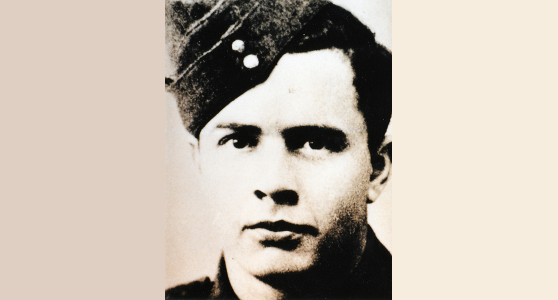
The Second World War was a global war that officially began with the German invasion of Poland on September 1, 1939, and ended with the Allied defeat of Axis forces in 1945. Britain and France declared war on the Nazi Third Reich on September 3, 1939, and seven days later the Parliament of Canada joined forces by making its first independent declaration of war. A very small force of 5,000 trained soldiers and 50,000 militia members were the foundation that would develop into a professional combat force of six divisions. By war’s end, over 1 million heroes, an estimated 6,854 residents of Chatham-Kent, served in military uniform, and Canada would possess the fourth-largest air force and third-largest naval fleet in the world.
It was not only the Canadian Army that emerged with a proud record. The Royal Canadian Air Force took a substantial share in the air offensive against the Nazi forces, and through the British Commonwealth Air Training Plan, helped to train large numbers of airmen from other nations of the Commonwealth. The Royal Canadian Navy played a vital role in protecting Allied convoys from Nazi submarines that lurked beneath the Atlantic and was ultimately entrusted with the bulk of the convoy work.
Canada’s economic effort was impressive and her financial contribution generous. A whole new series of industries were created to meet the demands for war supplies, from munitions to motor vehicles, aircraft and ships. In the field of diplomacy, Canada played a particularly important liaison role between Great Britain and the United States.
For a country of 11 million people Canada’s contribution to the defeat of the Axis powers was remarkable. Canada as a nation matured through the ordeal of war and was now ready to assume new responsibilities as a member of the world community. As a direct result of the Second World War, the United Nations were formed, and Canada would play a major role in the development of this organization, and the rise of peacekeeping forces.
Throughout the world, the Commonwealth War Graves Commissions maintains graves and memorials to commemorate the veterans of the Commonwealth Forces who died during the First and Second World Wars. A total of 109,980 Canadian heroes are thus memorialized in 74 countries.


